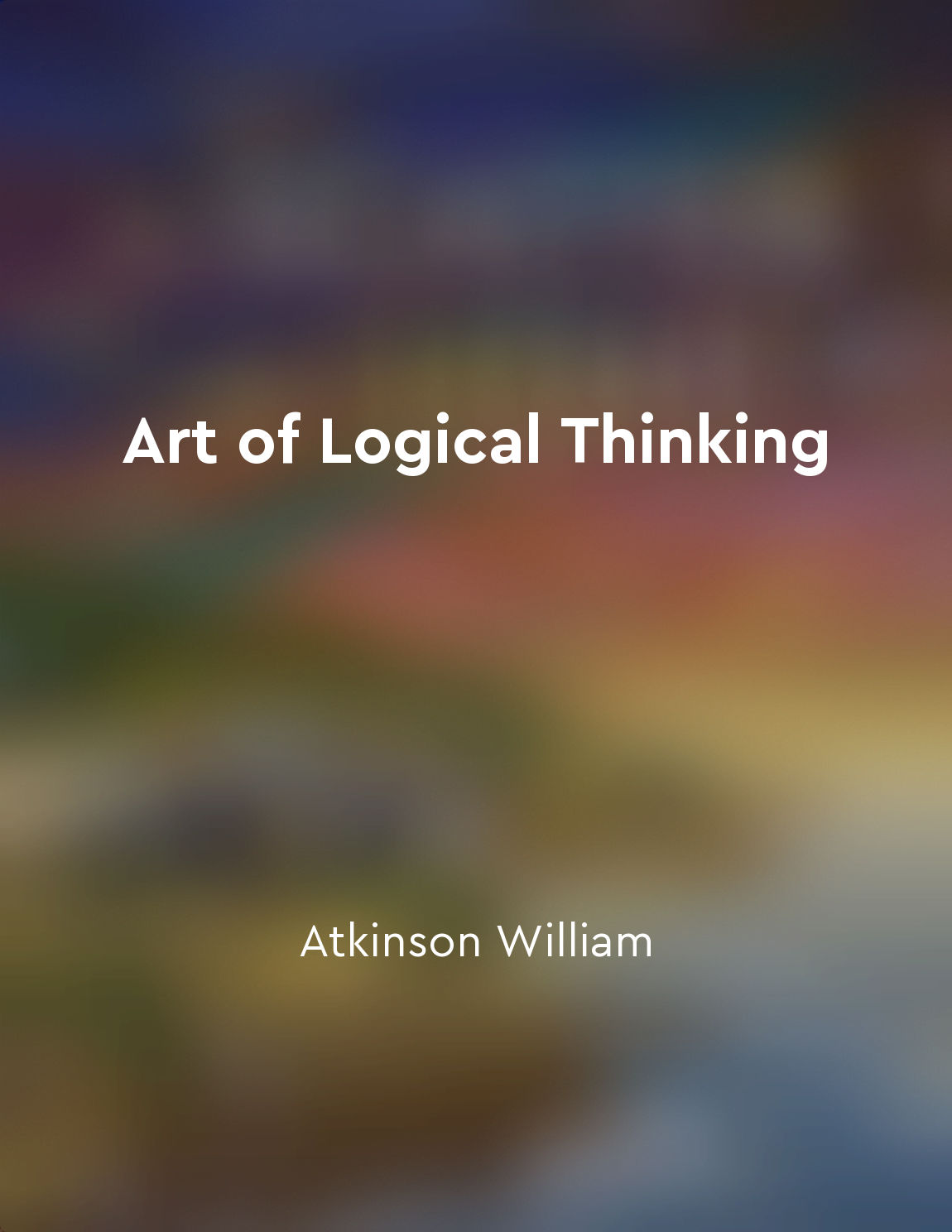Audio available in app
Assumptions should be supported by evidence from "summary" of Art of Logical Thinking by Atkinson William
When we make assumptions, we are essentially making educated guesses or suppositions about a given situation or set of circumstances. These assumptions are based on our past experiences, knowledge, or beliefs that we have accrued over time. However, it is crucial to remember that assumptions should not be made in a vacuum; rather, they should be supported by concrete evidence or logical reasoning. Evidence serves as the foundation upon which our assumptions are built. It provides a solid basis for our beliefs and helps us to form rational conclusions about a particular matter. Without evidence, our assumptions are merely conjectures or opinions that lack substance and credibility. Therefore, it is imperative to gather relevant evidence before making any assumptions in order to ensure their validity and reliability. Evidence can take many forms, such as factual data, empirical observations, expert opinions, or logical arguments. It is essential to consider the quality and reliability of the evidence that supports our assumptions, as not all evidence is created equal. By critically evaluating the evidence at hand and determining its relevance to the situation at hand, we can strengthen the validity of our assumptions and make more informed decisions. Moreover, evidence helps us to challenge and test our assumptions, allowing us to refine and revise our beliefs based on new information or perspectives. By being open to new evidence and willing to reconsider our assumptions in light of conflicting evidence, we can avoid falling into the trap of confirmation bias or tunnel vision. This intellectual humility and flexibility are essential for developing a logical and rational mindset.- The principle that assumptions should be supported by evidence is fundamental to the practice of logical thinking. By grounding our assumptions in solid evidence and being willing to test and revise them as needed, we can enhance our critical thinking skills and make more reasoned judgments. This approach not only leads to more robust and defensible conclusions but also fosters a deeper understanding of the complexities of the world around us.


